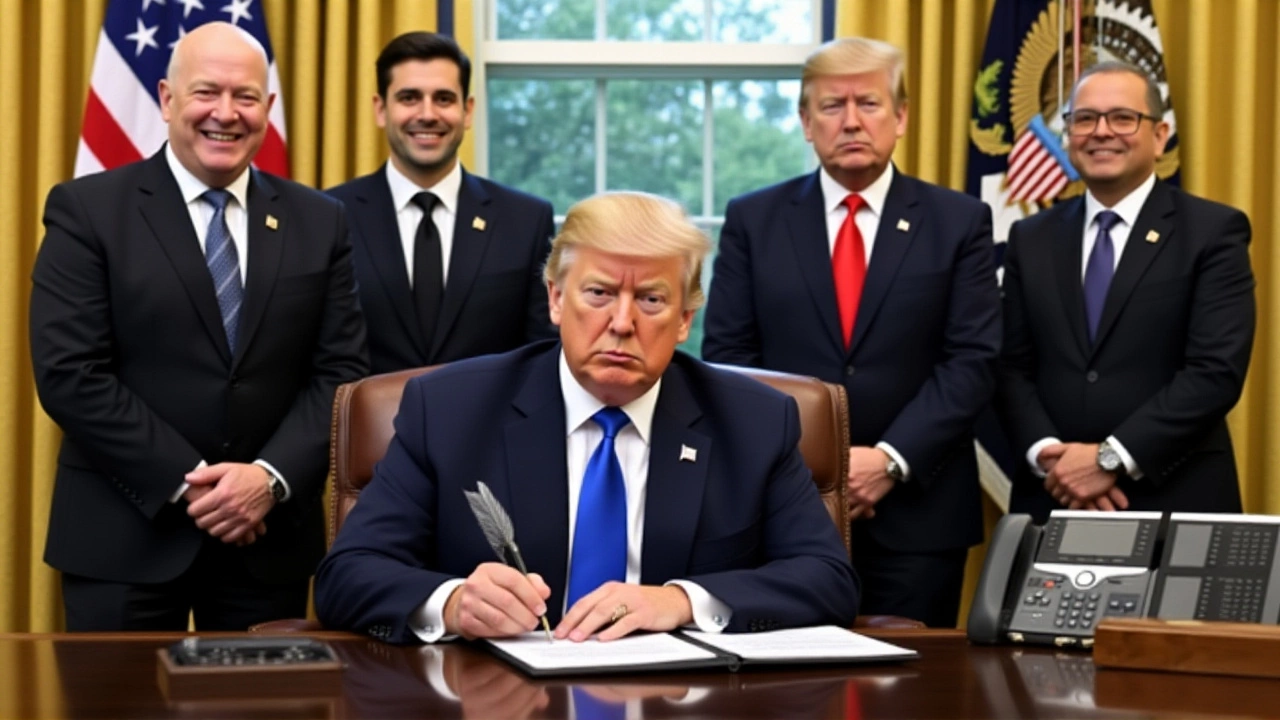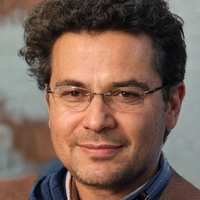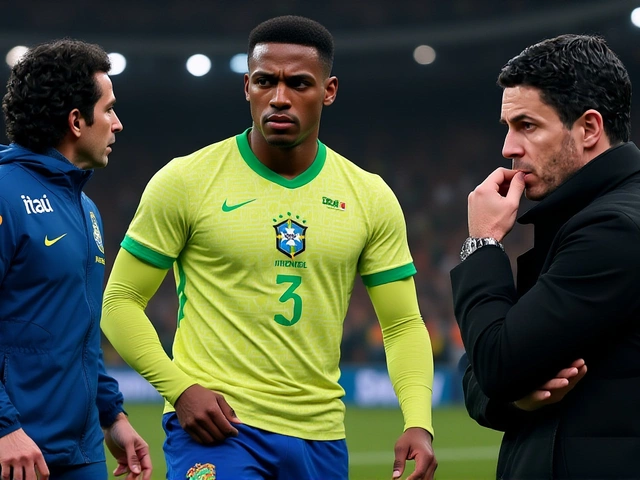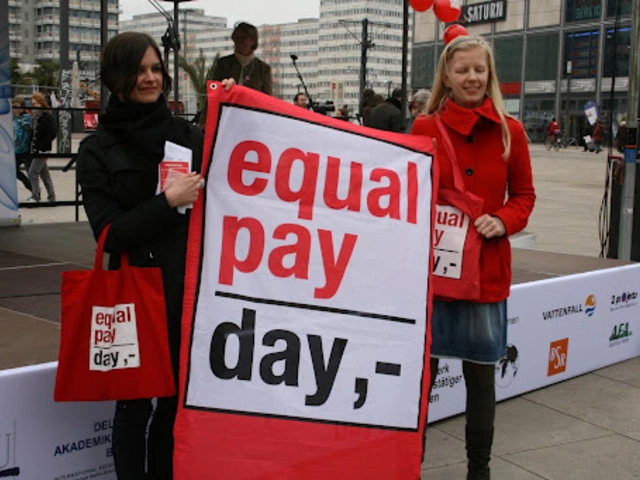On November 18, 2025, Donald Trump stood in the Oval Office and dropped two bombs: one for fans hoping to attend the 2026 FIFA World CupSeattle, and another for an entire country. He announced a new visa program called FIFA PASS — but made it clear it wouldn’t get anyone through the border. Then he threatened to pull matches out of Los Angeles and Seattle, and said attacking Mexico was "acceptable." The room went quiet. Even Gianni Infantino, FIFA’s president, didn’t blink — but he didn’t smile either.
"Tickets Are Not Visas" — The Reality Behind FIFA PASS
The U.S. Department of State, led by Marco Rubio, rolled out the FIFA PASS program as a way to fast-track visa interviews for fans who already bought tickets to the 2026 World Cup. Sounds helpful, right? Except Rubio was quick to add: "Tickets are not visas. They do not guarantee entry." Translation: You still need a visa. You still need to prove you’re not a security risk. You still need to wait in line — just a shorter one.The Department of Homeland Security, under Kristi Noem, hasn’t released application details, processing times, or even which consulates will handle the rush. But one thing’s clear: this isn’t a gift. It’s a political signal. With over 3 million tickets already sold across North America, the U.S. is bracing for an influx of international fans — and Trump wants credit for "making it easier." Meanwhile, fans in Brazil, Argentina, and Nigeria are already asking: "If it’s so easy, why are we still scared to apply?"
"We Can Move to Other Cities" — The Seattle and LA Threat
Then came the bombshell. Trump pointed at a map and said: "If safety issues arise, we can move to other cities." He didn’t name alternatives. He didn’t give reasons. Just Seattle and Los Angeles — two of the most iconic, logistically ready, and fan-friendly venues in the entire tournament.Seattle’s Lumen Field, which hosted World Cup qualifiers in 2024 and drew 68,000 fans for a U.S.-Mexico match, is now suddenly under suspicion. Los Angeles’ SoFi Stadium, built for $5.5 billion and designed to be the crown jewel of the tournament, is now a political liability. FIFA had already finalized the 16-host-city list in 2023. The draw ceremony — set for December 5, 2025Washington, D.C. — is just weeks away. Moving a venue now would mean rewriting contracts, refunding sponsors, and alienating local governments that spent years preparing.
"This is chaos," said Samantha Lee, a sports policy analyst at Georgetown University. "FIFA doesn’t move venues unless there’s a war, a pandemic, or a natural disaster. Trump’s vague safety concerns? That’s not a reason. It’s a negotiation tactic. And it’s working — because now everyone’s scared to say no."
"Attacking Mexico Is Acceptable" — A Diplomatic Earthquake
The most chilling moment came when Trump, speaking directly to reporters, declared: "I will do whatever is necessary to stop drug trafficking. Attacking Mexico is acceptable. I will do it proudly."It wasn’t a metaphor. It wasn’t hyperbole. He said it three times. And he said it while Gianni Infantino sat beside him, visibly stiffened, nodding politely as if the words were just background noise.
Mexico is a co-host. Its stadiums in Mexico City, Guadalajara, and Monterrey are already under construction. Its government has spent over $1.2 billion preparing for the World Cup. And now, the U.S. president is openly threatening military action — not against cartels, but against a sovereign nation that shares a 2,000-mile border, a 60-year trade partnership, and a World Cup.
Within hours, Mexico’s Foreign Ministry issued a terse statement: "We remain committed to the World Cup and to peace." But behind closed doors, officials are reportedly reviewing emergency contingency plans — including the possibility of relocating matches to other countries if U.S.-Mexico tensions escalate. Canada, already a co-host, is quietly offering to absorb extra games. The FIFA Executive Committee is said to be holding emergency calls.
The FIFA Peace Prize — Irony at Its Peak
As if the situation weren’t surreal enough, FIFA announced it will award its first-ever FIFA Peace Prize at the December 5 draw ceremony. And according to multiple sources, Trump’s name is "being floated" as a likely recipient."It’s a joke," said Carlos Mendez, a former FIFA ethics officer. "You can’t award a peace prize to someone who’s talking about invading a co-host nation. It’s not just bad optics. It’s a betrayal of the tournament’s spirit."
The prize was meant to honor leaders who promoted unity through football. Past recipients of similar honors include Nelson Mandela and Archbishop Desmond Tutu. Now, it could go to a president who’s weaponizing immigration and threatening war.
What’s Next? The Countdown to June 11, 2026
The clock is ticking. The draw ceremony is December 5. The first match is June 11, 2026. That’s less than seven months between the two. If Trump follows through on relocating venues, FIFA will have to scramble. Teams won’t know where to train. Airlines won’t know where to fly. Hotels won’t know how many beds to book.And if the U.S. actually threatens military action against Mexico? The entire tournament could collapse. FIFA has never canceled a World Cup — but it has moved hosts before. In 1986, Colombia dropped out. Mexico stepped in. In 1992, Yugoslavia collapsed. The tournament was moved to the U.S. But this? This is different. This isn’t about war in the Balkans. This is about a sitting U.S. president threatening a neighbor over drugs.
For now, the world is holding its breath. Fans are buying tickets anyway — because they believe in football. But the game isn’t just on the pitch anymore. It’s in the Oval Office. And the referee? He’s sitting right next to Trump, saying nothing.
Frequently Asked Questions
Does the FIFA PASS program guarantee entry to the U.S. for World Cup fans?
No. The FIFA PASS program only provides priority scheduling for visa interviews at U.S. consulates. It does not guarantee a visa, nor does it override standard immigration screening. Applicants must still prove ties to their home country, financial stability, and intent to return. The U.S. State Department confirmed that over 30% of visa applicants from high-risk countries were denied in 2024 — a rate unlikely to drop with this new program.
Could Seattle or Los Angeles really lose their World Cup matches?
Technically, yes — but it would be unprecedented. FIFA requires 18 months’ notice to change host cities, and all venues were approved in 2023 after extensive audits. Relocating a match now would cost over $200 million in penalties, sponsor refunds, and infrastructure adjustments. No alternative venues have been proposed, and local governments in both cities have vowed to fight any attempt to remove them.
What would happen if the U.S. attacks Mexico?
A military strike on Mexico would trigger immediate international condemnation, likely freeze all diplomatic relations, and cause FIFA to strip the U.S. of hosting rights. The tournament would be moved entirely to Canada and Mexico — or potentially to Europe. The economic fallout for U.S. tourism, airlines, and hospitality industries could exceed $15 billion. Even Trump’s allies in Congress have privately warned that such a move would be an act of war.
Why is FIFA still working with Trump despite his rhetoric?
FIFA needs the U.S. market. The 2026 World Cup is projected to generate over $6 billion in revenue, with nearly 40% coming from U.S. ticket sales, broadcasting rights, and sponsorships. Moving the tournament away from North America would be financially catastrophic. Infantino has repeatedly said "the U.S. has earned the trust of fans," even as Trump’s comments undermine that trust. FIFA’s priority is revenue — not diplomacy.
Is the FIFA Peace Prize real, or just a PR stunt?
It’s real — but it’s brand new. Announced in May 2025, the FIFA Peace Prize has no historical precedent and no official selection criteria. The inaugural award is scheduled for December 5, 2025, in Washington, D.C., and while Trump is being discussed, no official nominee has been named. Critics argue it’s being used to legitimize his administration’s actions, while supporters claim it’s meant to encourage global unity. Either way, the timing is deeply controversial.
How many fans are expected to attend the 2026 World Cup in the U.S.?
FIFA estimates over 1.2 million international fans will travel to the U.S. alone for the tournament, with total attendance across all three host nations expected to exceed 5 million. The U.S. is projected to host 60% of the matches, including the final. Major cities like New York, Chicago, and Atlanta are already seeing record hotel bookings — but uncertainty around visas and venue changes is causing a noticeable dip in international ticket sales from Latin America and Europe.





